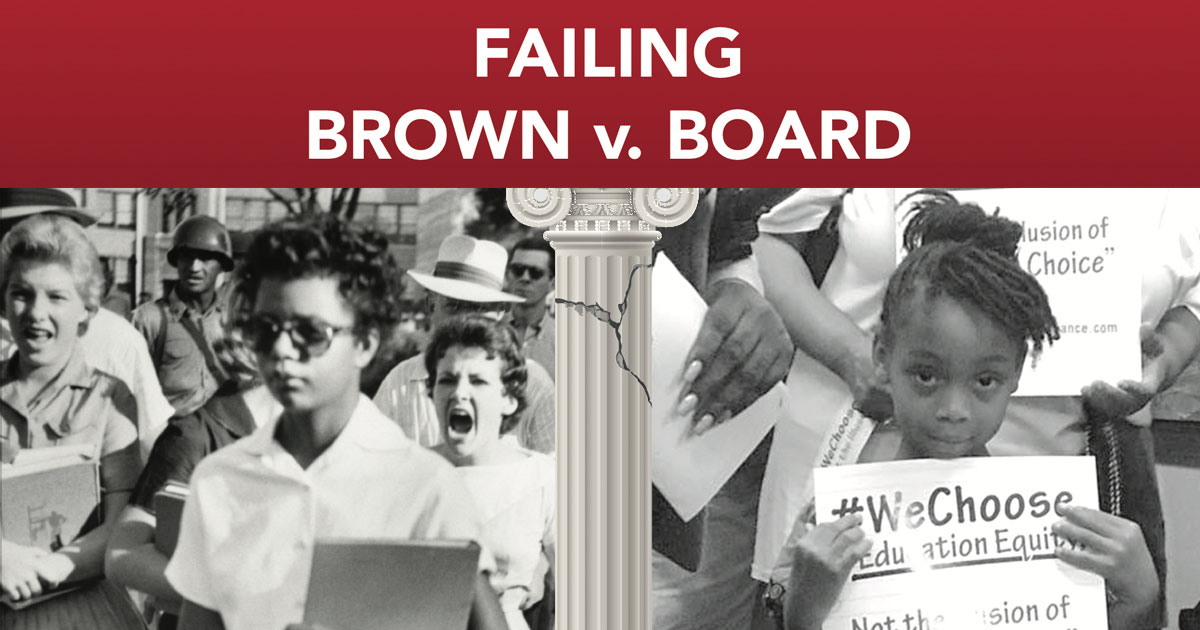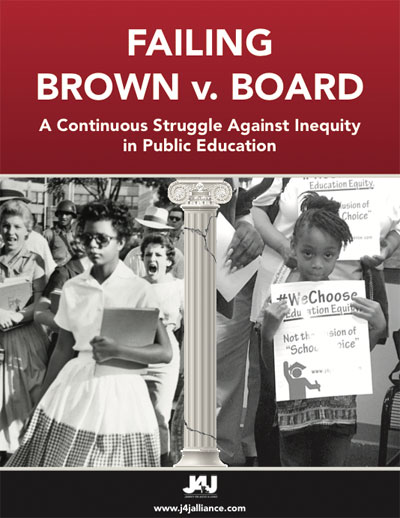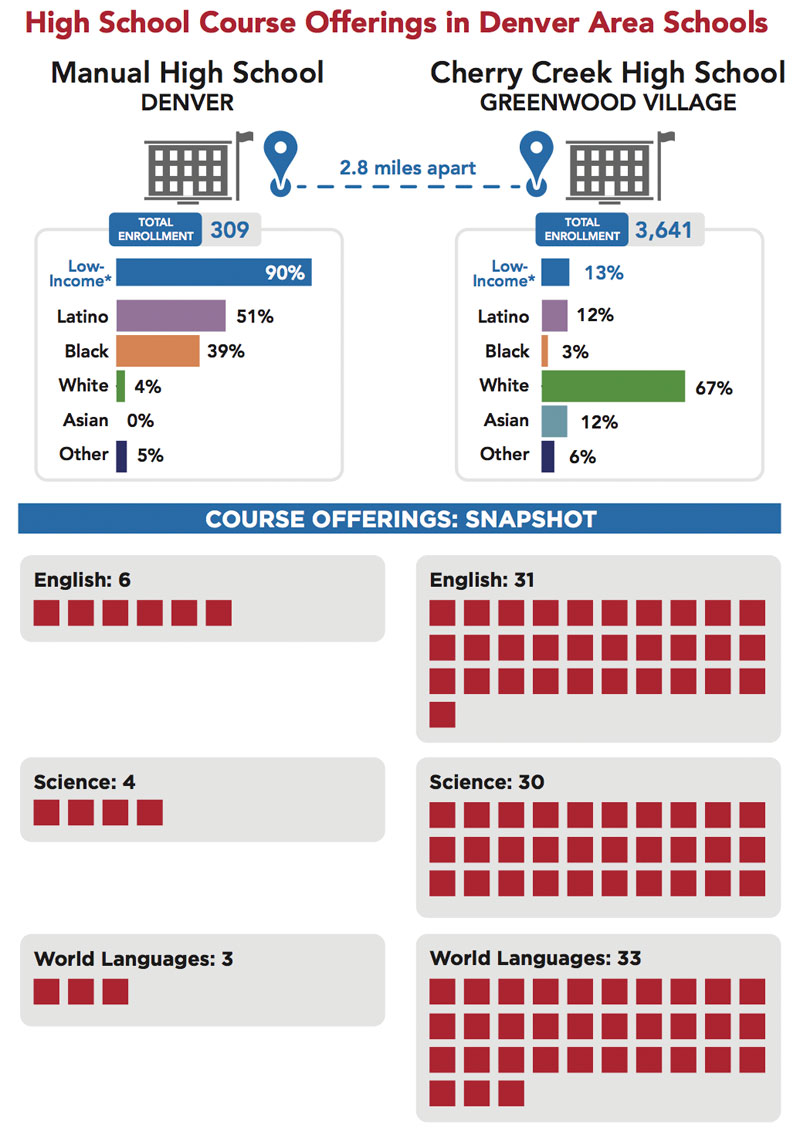Blog
New Journey for Justice Report Shows How We’re Failing Brown v. Board

 More than 60 years after the landmark Supreme Court decision Brown v. Board of Education called out “separate and equal” for the lie that it was, much of our public school system still bears the hallmarks of segregation based largely on race.
More than 60 years after the landmark Supreme Court decision Brown v. Board of Education called out “separate and equal” for the lie that it was, much of our public school system still bears the hallmarks of segregation based largely on race.
The Journey for Justice Alliance, a Schott grantee partner and national network of community-based organizations in 31 cities, released a new report, Failing Brown v. Board, last week. The report illuminates just how inequitable public education remains today, largely across racial lines. Through examining course offerings at high schools in 12 cities (and one elementary school in Chicago), this report, which is backed by substantial research, shows how black and brown students are denied “access to inspiration” in comparison with their white, more affluent peers. Failing Brown v. Board was released on the first day of the new Poor People’s Campaign.
Consider the stark differences between two neighboring schools in the Denver area — less than three miles apart, yet a world of difference in educational opportunity:

The Journey for Justice report examines both the raw data of course offerings and a larger body of research that details the outcomes of such inequities. For example, students who take a rigorous course before they graduate from high school are 5 to 6 percentage points more likely to enroll in college than students who do not take such courses. The effects of an impoverished curriculum extend far beyond high school.
Also included in the report is a list of demands on federal, state, and district officials, including:
- Congress will fund the Every Student Succeeds Act (the reauthorized ESEA) sufficiently that every district receiving federal funds gets enough money to ensure that disadvantaged students, English learners, students of color and those with disabilities access and have the supports to achieve in the courses that ESSA’s Title IV defines as a well-rounded education. 2017 levels for Title IV are less than one-fourth of what Congress authorized, meaning many districts currently receive no support at all.
- States will provide templates, technical assistance, relief from testing mandates and additional, dedicated funding for districts conducting needs assessments around equitable course offerings, and for schools and districts striving to provide coursework more equitably as part of a transition to sustainable community schools district-wide. This should include assistance rethinking budgets and removing support for privatization and over-testing efforts, which drain funds from and work against greater equity in public schools.
- Schools not offering the full range of course offerings will be prioritized for additional funding from a dedicated revenue source and immediate technical assistance and support to transition into a sustainable community school process for the next school year.
Read the full report here, and watch Journey for Justice’s live stream release of the report:


